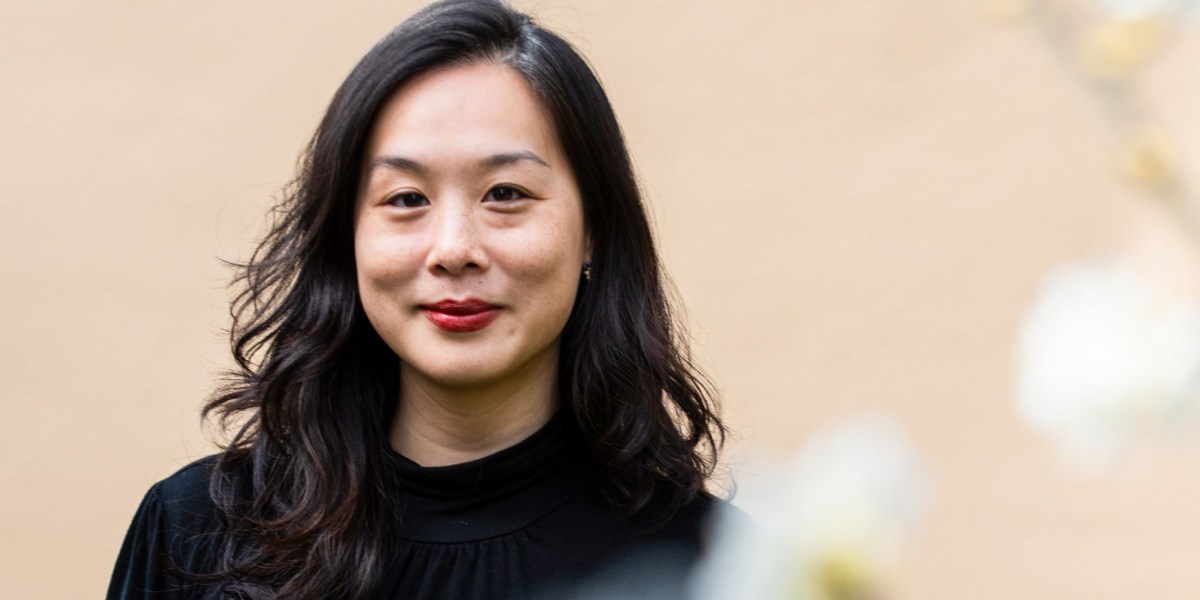The startup CEO remaking City Hall

She and her cofounders had conceived the idea for Remix while she was on a Code for America fellowship, a program that pairs promising young tech thinkers with government agencies to tackle real social problems. The company makes a digital platform that helps public transit agencies map and redesign their networks to improve service and efficiency. Among the hundreds of local governments that use its products globally, the company has built a proven track record of actually making cities work better. (This is not something that can be said of all urban tech companies, to take ride-hailing businesses as an example.)
Chu’s background further testifies to her urbanist bona fides. Before Remix, she had stints as a user experience designer at Zipcar, working on New Orleans’s post-Katrina recovery effort, and writing for Dwell magazine. As an undergraduate at MIT, she’d studied architecture, but she realized she was interested in urban design beyond the scale of individual buildings. She fell in love with cities themselves: their form, their function, their flow. Although she has access to a city fleet vehicle, she’s an ardent cyclist and has often said she hopes never to own a car. So far, so good—for her, Boston’s walkability has always been one of its biggest draws.
Translating this passion for cities into workable ideas to improve them, though, takes a certain finesse. And according to her colleagues, Chu possesses both the strategic-thinking talents and the people skills to actually move needles.
“She’s really good at asking questions and listening, building empathy with people she works with, and helping us get a better understanding of the world we’re in,” says Dan Getelman, a Remix cofounder and its current chief technology officer. “She’s very driven, and down to figure out what it takes to do what needs to be done and do it.”
Chu hadn’t been looking to leave Remix or Via, and it took her a few weeks to decide to take up Weiss’s offer. Ultimately, she felt it was a once-in-a-lifetime opportunity to help Wu make the kind of urban change that both women strongly believe in, and in a city she truly loves.
She started in the spring of 2022 and quickly learned that building a new administration was hard, at times chaotic work. It was a lot like her time leading a startup, in fact; her main focus was putting together a leadership team and crafting the right organizational processes to support the mayor’s ambitions. Chu compares that first year to “building the plane as you’re flying it.” But she’s proud of what she accomplished—namely, hiring for cabinet positions that never previously existed, such as the city’s chief of planning, Arthur Jemison, as well as its deputy chief of urban design, Diana Fernandez Bibeau, and director of green infrastructure, Kate England.
“I know people don’t always think of city government as the place to go for the best talent,” she says. “But I think we’ve overcome a lot of that, and have built a truly world-class leadership team that both has Boston roots and can bring in new insights.”
There are fundamental differences between running a company and running a city, however. In the private sector, success can be measured in revenue and customer growth. But in a young mayoral administration—especially one that promises transformation within an organization that is built to move slowly—clear-cut wins can be somewhat elusive. Observers of Boston politics note that this may be one of the Wu administration’s central challenges. With all her campaign pledges, the mayor “essentially told voters to raise their expectations of what’s possible for city governments to achieve,” Abdallah Fayyad wrote in the Boston Globe in January 2022. While Wu’s State of the City address in January 2023 highlighted several accomplishments, her marquee campaign promises, such as eliminating transit fares and dismantling the Boston Planning & Development Agency, are yet to be realized.



